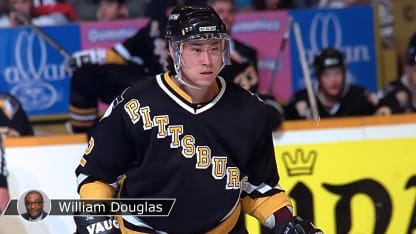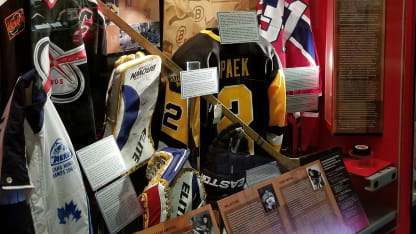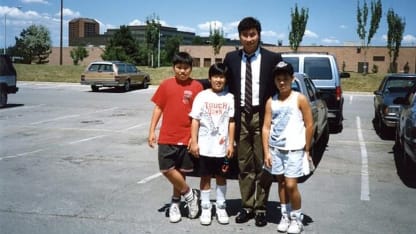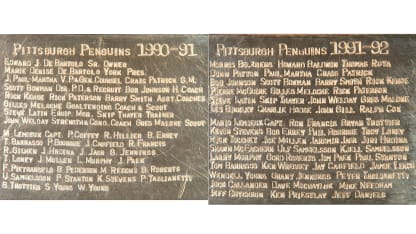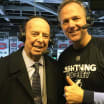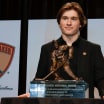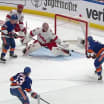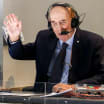The 54-year-old continues to build his legacy as coach of South Korea's men's national team, which competed in the 2018 PyeongChang Olympics; it qualified for the first time under his tutelage.
"Jim Paek is a very, very impactful in terms of his presence and contribution to the game itself, not just in Korea but in general for the young kids," said Alex Kim, a Korean-American former professional player who coaches the Anaheim Jr. Ducks 16 AAA program. He's also a trainer who has worked with Dallas Stars forward Jason Robertson and his younger brother, Toronto Maple Leafs forward prospect
Nicholas Robertson
; each is Filipino-American. "He was a role model for me as a player and now as a coach. He's a torch-bearer, if you will."
Paek said he didn't think about the significance of his accomplishments early in his NHL career; he was too busy in the moment playing. But he came to recognize his impact when members of the Korean community began telling him he was an inspiration.
"When those young kids say, 'I'm Korean and playing hockey because of you,' it's just a fantastic feeling," Paek said, "and it brings you back home, brings you back that you are Korean and what a great honor that is."
Paek was born in Seoul, South Korea, on April 7, 1967, and his family moved to Canada about a year later. His parents, Bong-hyeon and Kyu Hui Paek, maintained their Korean heritage, speaking the language at home to their four children and serving dishes of their homeland.
The family also quickly embraced the ways of their new country. For Paek and his older brother, Phil, that meant playing hockey.
"If you wanted friends, it you wanted something to do, you're playing hockey," said Paek, who scored 34 points (five goals, 29 assists) in 217 NHL games for the Penguins, Los Angeles Kings and Ottawa Senators from 1990-95. "Saturday night was family night around the TV watching 'Hockey Night in Canada.' Hockey was a lifestyle and if you didn't embrace that you'd be alone."
